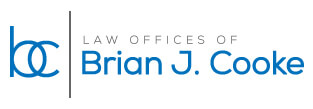Free Consultation: 314-526-3779
What is Cross-Examination in Court?
Cross-examination is a stage in court proceedings, especially in criminal trials, where the defense attorney questions the prosecution witness to challenge their testimony and credibility. It follows the direct examination, where the opposing counsel presents their witness to give direct testimony supporting their case.
During cross-examination, the attorney aims to uncover inconsistencies, exaggerated claims, or bring out the truth that might weaken the opposing party’s argument. This process is not just a fundamental part of trial procedures but is pivotal in shaping the jury’s perception of the witness’s credibility and the strength of the case presented.
The Role of Cross-Examination in Family Law
In family law, particularly in child custody disputes and cases involving family violence or domestic violence, cross-examination plays a critical role. A St. Louis juvenile lawyer will use it to assess the credibility of witnesses, including vulnerable witnesses, and to scrutinize the witness statements and evidence presented.
This can influence the court’s decision on matters like custody rights, restraining orders, and the imposition of violence orders. The examination often involves asking leading questions to reveal any contradictions in the witness’s testimony, aiming to protect the best interests of the child and ensuring a fair trial.
Techniques and Considerations in Cross-Examination
Effective cross-examination techniques require thorough legal research, understanding the federal rules of evidence, and mastering the art of framing cross-examination questions. Defense attorneys and opposing counsel must prepare by reviewing the witness’s prior testimony, witness statements, and any evidence act provisions relevant to the case.
Leading questions are commonly used to control the narrative and guide the witness towards specific admissions, while also being mindful of the hearsay rule and the limitations it imposes on the admissibility of certain statements.
Cross-Examination in Various Legal Contexts
Cross-examination extends beyond criminal law, affecting areas like immigration law, traffic law, and more. In immigration cases, for instance, the credibility of a witness can be crucial in determining the outcome of asylum or deportation proceedings.
Similarly, in traffic law, the cross-examination of witnesses can be pivotal in cases of alleged violations. The Supreme Court and lower courts alike recognize the importance of cross, as it helps ensure that all testimonies are scrutinized under the law, ensuring justice and fairness in legal proceedings.
Closing the Case: The Impact of Cross-Examination on Trials
In the courtroom, the cross-examination phase can set the stage for what follows in the trial, influencing the jury’s perception before the closing argument. It is an opportunity for the defense attorney to highlight weaknesses in the opposing party’s case and to reinforce their client’s position.
Following cross, the trial moves to the redirect examination and finally to the closing statement, where attorneys summarize the evidence and testimony presented, aiming to solidify their arguments and persuade the court of their client’s stance. Effective cross examination, therefore, is not just about questioning but is a strategic tool in the legal arsenal, pivotal for shaping the trial’s outcome.
